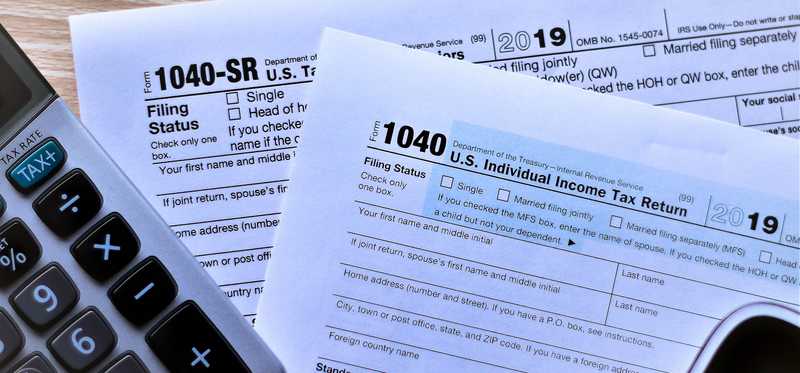10 Steps Investors Should Take to Prepare for Retirement

10 Steps Investors Should Take to Prepare for Retirement
Planning for retirement is challenging
Retirement can be one of the most joyous times of your life, but planning for it can be stressful. It can take decades to prepare for your senior years, and simply saving for retirement is only one part of the equation. To ensure you're as ready as possible, there are 10 steps you should be taking before you retire.
5 Winning Stocks Under $49
We hear it over and over from investors, “I wish I had bought Amazon or Netflix when they were first recommended by the Motley Fool. I’d be sitting on a gold mine!” And it’s true. And while Amazon and Netflix have had a good run, we think these 5 other stocks are screaming buys. And you can buy them now for less than $49 a share! Simply click here to learn how to get your copy of “5 Growth Stocks Under $49” for FREE for a limited time only.
Previous
Next

1. Decide what age you want to retire
The age you choose to retire will affect your entire retirement plan -- from how much you need to have saved, to how much time you have to prepare, to how much you might receive in Social Security benefits -- so it's crucial to make this decision carefully. Your finances will play a major part in choosing when to retire, since retiring before you're financially ready can be disastrous. But it's also important to think about your health as well as your retirement plans. If you would like to travel the world during retirement, for instance, you may choose to retire earlier while you're still relatively young and healthy. But if you're in fantastic physical shape and expect to live a long and healthy life, you may be able to afford delaying retirement.
ALSO READ: 3 Factors in Determining Your Ideal Retirement Age
Previous
Next

2. Double-check your retirement savings goal
Once you know what age you'd like to retire, make sure your savings target is still accurate. One of the easiest ways to do this is to run your information through a retirement calculator, which will give you an idea of how much you'll need to save by your desired retirement age, as well as how much you'll have to save each month to reach that goal. If your current contribution rate doesn't align with what you should be saving to achieve your goal, you may need to tweak your budget to find some extra cash to put toward your retirement fund.
Previous
Next

3. Think about how much you can rely on Social Security benefits
As you're considering what age to retire, it's also important to think about when you'll begin claiming Social Security benefits. You can file for benefits as early as age 62, but the longer you wait (up to age 70), the more you'll receive each month. The average beneficiary receives around $1,500 per month, according to the Social Security Administration, but claiming earlier or later can affect your benefit amount by hundreds of dollars per month. To get an estimate of how much you can expect to receive, you can check your statements by creating a mySocialSecurity account. From there, you can determine just how much you'll be able to depend on your benefits in retirement.
Previous
Next

4. Consider taking advantage of catch-up contributions
Once you turn 50 years old, you can supercharge your 401(k) and IRA contributions. Normally, investors are allowed to contribute up to $19,500 per year to their 401(k) and $6,000 per year to their traditional or Roth IRA. However, those who are age 50 or older are eligible for catch-up contributions, which means you can save an additional $6,500 per year in your 401(k) and an extra $1,000 per year in your IRA. If you're behind on your savings or just want to give your investments an extra push before retirement, catch-up contributions can help you build a much stronger retirement fund.
5 Winning Stocks Under $49
We hear it over and over from investors, “I wish I had bought Amazon or Netflix when they were first recommended by the Motley Fool. I’d be sitting on a gold mine!” And it’s true. And while Amazon and Netflix have had a good run, we think these 5 other stocks are screaming buys. And you can buy them now for less than $49 a share! Simply click here to learn how to get your copy of “5 Growth Stocks Under $49” for FREE for a limited time only.
Previous
Next

5. Make sure you're prepared for healthcare costs
The average retiree can expect to pay around $4,300 per year in out-of-pocket healthcare expenses, according to a study from the Center for Retirement Research at Boston College. Even with Medicare coverage, you'll still be responsible for some out-of-pocket costs, including premiums, deductibles, copays, and coinsurance. In addition, you don't become eligible for Medicare until age 65, so if you retire before that, you'll need to have a plan for how you’ll cover healthcare expenses.
ALSO READ: What Will Healthcare in Retirement Cost You? Try $295,000.
Previous
Next

6. Assess your risk tolerance
In general, the closer you get to retirement, the more conservative your investment portfolio should be. That means as you get older, your portfolio should shift more toward bonds and less toward stocks. Just how much you should invest in stocks versus bonds, though, largely depends on your tolerance for risk. Although bonds are "safer" investments, they generally see lower rates of return than stocks. So it's important to balance risk and reward as you're investing to ensure you're playing it safe enough without sacrificing too much in potential gains.
Previous
Next

7. Consider how a stock market crash could affect your plans
Nobody knows whether a stock market crash is on the way or not, but it's important to consider how a market downturn could change your plans. If the market were to crash just before retirement and your savings took a hit, could you still afford to retire? Would you be able or willing to delay retirement by a few years? If you choose to retire during a market downturn, could you make financial sacrifices while your investments recover? By thinking about these questions now, you can create a strategy just in case the market does crash as you’re preparing for retirement.
Previous
Next

8. Establish a withdrawal strategy
When it comes to preparing for retirement, saving is only half the battle. An equally important factor to consider is how much you'll be withdrawing from your retirement fund each year, because that will directly affect how long your savings last. The 4% rule is one common guideline, and it states that you can withdraw 4% of your total savings during the first year of retirement, then adjust your withdrawals each year after to account for inflation. The 4% rule does have its flaws (for instance, it assumes you'll be spending the same amount each year in retirement, when in reality, many retirees see their expenses fluctuation year to year), but it is a good benchmark to determine roughly how much you can safely withdraw each year.
Previous
Next

9. Factor taxes into your retirement plan
Unfortunately, even in retirement, you may not be able to escape taxes. If you're saving in a 401(k) or traditional IRA, you'll owe income taxes on your withdrawals once you retire. In addition, you could face both state and federal taxes on your Social Security benefits depending on where you live and your retirement income. If you're not prepared for these taxes, they could potentially throw off your retirement plans.
ALSO READ: Want to Lower Your Taxes in Retirement? Do This 1 Thing.
Previous
Next

10. Think about where you'll live
Approximately 40% of adults age 55 and older say they'd like to move at least once more, according to a survey from Freddie Mac, and moving during your senior years can dramatically affect your retirement plans. If you move somewhere with a significantly higher or lower cost of living, that could have an impact on how long your savings last. It's also important to think about how factors like property taxes or income taxes differ between your current city and your prospective city, because that can also affect your long-term finances. So if you're thinking about moving, make sure you've done your homework and are accounting for how these changes could affect your retirement plans.
5 Winning Stocks Under $49
We hear it over and over from investors, “I wish I had bought Amazon or Netflix when they were first recommended by the Motley Fool. I’d be sitting on a gold mine!” And it’s true. And while Amazon and Netflix have had a good run, we think these 5 other stocks are screaming buys. And you can buy them now for less than $49 a share! Simply click here to learn how to get your copy of “5 Growth Stocks Under $49” for FREE for a limited time only.
Previous
Next

A successful retirement requires a strategy
As you're planning for retirement, it's important to have a strategy in place. By thinking about all the expenses you may face in retirement and adjusting your plans accordingly, you'll give yourself the best chance of enjoying your senior years comfortably.
The Motley Fool has a disclosure policy.
Previous
Next
Invest Smarter with The Motley Fool
Join Over Half a Million Premium Members Receiving…
- New Stock Picks Each Month
- Detailed Analysis of Companies
- Model Portfolios
- Live Streaming During Market Hours
- And Much More
READ MORE
HOW THE MOTLEY FOOL CAN HELP YOU
-
Premium Investing Guidance
Market beating stocks from our award-winning service
-
The Daily Upside Newsletter
Investment news and high-quality insights delivered straight to your inbox
-
Get Started Investing
You can do it. Successful investing in just a few steps
-
Win at Retirement
Secrets and strategies for the post-work life you want.
-
Find a Broker
Find the right brokerage account for you.
-
Listen to our Podcasts
Hear our experts take on stocks, the market, and how to invest.
Premium Investing Services
Invest better with The Motley Fool. Get stock recommendations, portfolio guidance, and more from The Motley Fool's premium services.